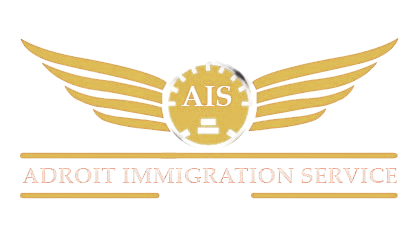6 Most Common Visa Rejection Reasons For Dubai.
Dubai, with its gleaming skyscrapers, bustling economy, and vibrant cultural scene, attracts millions of visitors every year. However, obtaining a visa to enter Dubai can be a daunting process, and visa rejections are not uncommon. Understanding the reasons behind visa rejections is crucial for anyone planning to visit this dynamic city. In this article, we’ll explore the six most common reasons why Dubai visa applications get rejected.
Introduction to Dubai Visa Rejections
Dubai, situated in the United Arab Emirates (UAE), has become a global hub for tourism, business, and leisure. Whether you’re traveling for work or pleasure, obtaining a visa is often a prerequisite. However, despite the city’s welcoming reputation, visa rejections do occur, leaving many applicants disappointed and frustrated.
Insufficient Documentation
One of the primary reasons for visa rejections in Dubai is insufficient documentation. This can include a variety of factors, such as:
1. Lack of passport validity
Applicants must ensure that their passport is valid for at least six months beyond the intended duration of stay in Dubai.
2. Missing or incorrect application form
Submitting an incomplete or incorrectly filled application form can lead to automatic rejection.
3. Incomplete personal information
Failure to provide accurate personal details, such as residential address or contact information, can raise red flags during the application process.
Financial Insufficiency
Financial stability is another crucial factor in visa approval. Dubai authorities want to ensure that applicants have the means to support themselves during their stay. Common financial-related reasons for rejection include:
1. Lack of proof of funds
Applicants must provide evidence of sufficient funds to cover their expenses while in Dubai, including accommodation, transportation, and daily expenses.
2. Inadequate financial statements
Incomplete or unclear financial statements can result in rejection, as authorities may question the applicant’s financial standing.
Travel History
Dubai immigration officials closely scrutinize an applicant’s travel history to assess their credibility and intentions. Common issues related to travel history include:
1. Suspicious travel patterns
Frequent visits to countries with high immigration risk or a history of illegal immigration may raise concerns.
2. Overstaying in previous visits
Individuals who have overstayed their visa in Dubai or other countries may face rejection due to concerns about compliance with immigration laws.
Criminal Record
A clean criminal record is essential for visa approval in Dubai. Applicants with a history of criminal convictions or involvement in illegal activities are likely to face rejection.
1. Past convictions
Any previous criminal convictions, regardless of severity, can negatively impact visa approval.
2. Involvement in illegal activities
Involvement in activities such as drug trafficking, fraud, or terrorism will almost certainly result in visa rejection.
Employment Status
Stable employment is viewed favorably by Dubai immigration authorities, as it indicates financial stability and ties to the home country. Common employment-related reasons for rejection include:
1. Unstable job history
Frequent job changes or periods of unemployment may raise concerns about the applicant’s ability to support themselves financially.
2. Inability to prove employment ties
Applicants who fail to provide adequate documentation demonstrating their employment status may face rejection.
Inconsistent Information
Consistency and accuracy are crucial when completing visa applications. Discrepancies or conflicting information can raise doubts about the applicant’s credibility.
1. Discrepancies in application details
Inconsistencies between the information provided in the application and supporting documents can lead to rejection.
2. Conflicting travel plans
Discrepancies between the stated purpose of travel and the itinerary provided can raise suspicion.
Health Concerns
Health is an important consideration for visa approval, as authorities want to ensure that visitors do not pose a health risk to the local population.
1. Failing medical examination
Applicants who fail to meet the health requirements set by Dubai authorities may face rejection.
2. Pre-existing health conditions
Certain pre-existing health conditions may raise concerns about the applicant’s ability to travel or access healthcare while in Dubai.
Overstaying
Previous violations of visa regulations, such as overstaying a visa, can significantly impact future visa applications.
1. Previous visa violations
Individuals with a history of overstaying or violating visa regulations may find it challenging to obtain a visa for future visits to Dubai.
2. Failure to adhere to visa regulations
Failure to comply with visa regulations during previous visits, such as working on a tourist visa, can result in rejection.
Poor Interview Performance
In certain instances, applicants might find themselves obligated to participate in an interview as part of the visa application procedure. Poor performance during the interview can jeopardize the chances of approval.
1. Inability to answer questions convincingly
Applicants who struggle to provide clear and convincing answers to interview questions may raise doubts about their intentions.
2. Lack of clarity in responses
Confusion or inconsistency in responses during the interview can raise suspicions about the applicant’s credibility.
Lack of Travel Insurance
Travel insurance is often a requirement for visa approval in Dubai. Failure to provide proof of adequate coverage can result in rejection.
1. Absence of adequate coverage
Applicants must provide evidence of travel insurance that covers medical emergencies, trip cancellation, and other unforeseen circumstances.
2. Failure to provide insurance details
Incomplete or unclear information regarding travel insurance can lead to rejection.
Visa Application Errors
Technical mistakes or errors in the visa application can result in rejection, regardless of the applicant’s eligibility.
1. Technical mistakes in the application
Errors such as incorrect dates, missing signatures, or illegible handwriting can lead to rejection.
2. Submission of incorrect or outdated forms
Using outdated or incorrect visa application forms can result in automatic rejection.
Inadequate Tie to Home Country
Dubai authorities want to ensure that visitors have strong ties to their home country and are likely to return after their visit.
1. Lack of property ownership or assets
Applicants who cannot demonstrate strong ties to their home country, such as property ownership or financial investments, may face rejection.
2. Insufficient family ties
Lack of close family relationships or dependents in the home country may raise concerns about the applicant’s intention to return.
Submission Timing
Timing is critical when applying for a Dubai visa. Submitting the application too close to the intended travel date can result in rejection.
1. Applying too close to the travel date
Dubai authorities recommend applying for a visa well in advance of the planned travel date to allow for processing time.
2. Failure to meet processing timelines
Delays in processing or submitting additional documents after the deadline can result in rejection.
Conclusion
In conclusion, while obtaining a visa for Dubai may seem straightforward, there are several common reasons why applications get rejected. From insufficient documentation to past criminal convictions, understanding these factors can help applicants avoid common pitfalls and increase their chances of approval.


